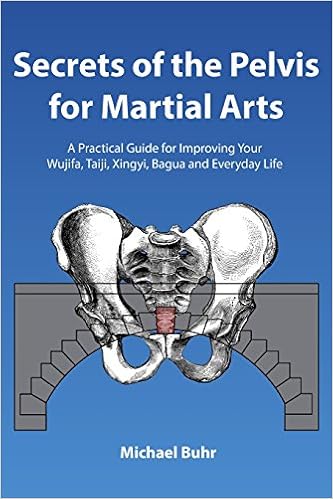* What is a principle?
Answer: A principle is true in a number of situations. Principles are objective. A dictionary definition reads as: A base generalization that can be accepted as true. A fundamental essence. Read Steven Covey's: Principle Centered Leadership.
(If this seems to be a strange question, consider I grew up and have largely lived my life with Commandments, rules, laws, Code of Conduct, customs, etiquette, etc. The concept of living life or practicing a physical art according to principle was alien to me.)
* Question: What is principle driven training? How do I know if my training is driven by principle?
Answer: Principles can be tested by running through various paradigms. Principles are true in all paradigms. You must discover principle for myself. If you were told, you still wouldn't get it. You wouldn't be able to demonstrate it.
* Question: I sense that I've mechanically substituted feeling in place of data - treating individual kinesthetic feelings as a pieces of data. How can I distinguish real feeling from data and keep feeling as feeling?
Answer: Say this phrase"I'm sensing that I... "* Question: Do you have any ideas on how I can continue connecting?
Me: I'm sensing that I.
Instructor: Your intonation, the way you said it, was very matter-of-fact, mechanical and without feeling. Can you juice it up and (for you) put a lot more sensuality into it? More like Aaahhheeeeemmmmm ssssehhhhnnnnsssssseeeennnnngg...
Me: Aaahhheeeeemmmmm ssssehhhhnnnnsssssseeeennnnngg thhhaaaaaat Aaahhheeeee
Instructor: Better. I can hear the feeling. Don't substitute feeling for data. Just feel!
Answer: Asking questions opens opportunities.* Question: Last time we talked about productive distractions. In the spectrum of never get distracted to frequently distracted, how much is enough?
The more ways we connect, the more ways we open to the breadth and depth of feeling. The more we feel, the more we notice. The more we notice and feel, the more we connect.
Notice and feel in another person. In relationship, you can learn about yourself... if you're noticing.
Answer: Sometimes if you get stuck on focusing, you can use distraction to reset the feeling. Sometimes a distraction is a method to avoid focusing on a (painful) feeling. Notice when you want to or are distracted from feeling or noticing feeling. This will tell you a lot about your distraction.
Knowing the place you don't want to go and blocking going there creates armor. It's OK to notice and choose to not go there at that moment because this leaves open the opportunity to choose to go there in the future.
(The distinction regarding "choosing" is when you see a problem, whether you deny that what you see is a problem OR you choose to not deal with it right now and commit to dealing with it later in another setting.
For example, in a Wujifa class, my instructor told me to raise my arm and keep my shoulder relaxed. I immediately fired back, "But my arm doesn't work that way!" This would be an example of not wanting to look at a problem and blocking myself from looking at it.
A few weeks later in another Wujifa class, my instructor told me to raise my arm and keep my shoulder relaxed. This time I asked, "How can I do that? I don't know any other way to raise my arm. How can I reduce the amount of muscle I'm using to raise my arm? He then showed me a method to do that. I still couldn't do it on my own in that class but I committed to working on it at home.)
* We had a discussion about noticing how you notice. I'm learning that I'm not aware of the meta processes (principles?) driving my thought processes. I don't observe or notice my own thought processes. I don't select, analyze or modify my processes. I need to figure out these meta-aspects.
(Noticing how you notice. Honestly, I'm not really working on this. I'm afraid that if I really notice how I notice and then change how I notice, I would truly notice differently and therein, I think, is the game changer not only for stance but for daily life. How I live my life shows up in stance. How I practice standing shows up in daily life. Resistance. Armor.)
* Knowing is not derived from data. Knowing is being able to demonstrate.
(For me, data was the basis of knowledge and knowledge was gleaned primarily from books, texts, manuals and a lesser amount through show-and-tell; this is how you change a flat tire... It really took a long time to change my thinking that the true knowledge I have of internal martial arts practice is my own personal experience.
I still find myself wanting to use data to fill in the gaps of my experience. I thank my Wujifa instructor for calling me out when I do this; helps me recognize the difference.)
Further reading:
Introductory article explaining this "Journal Notes" series: Zhan Zhuang Training Journal
Previous article in this series: Compartmentalization Compromises Connection: Journal Notes #83
Next article in this series: - Another Level of Practice: Journal Notes #85


No comments:
Post a Comment